
Member III
Don't forget, without good trailer brakes, the trailer push's the back of the tow vehicle up on stops. This not only lightens the back but, if the trailer is not perfectly straight, increases the chance of jack knife by a huge factor.

Member III

Advocate III
.Track width is the width of the rear axles. Matching it to the tow vehicle can be convenient if it's an off road type trailer. With regular trailers it doesn't matter.
Wheelbase is the distance between your axles. Matching the trailer axle distance to the front ax,e distance, from the rear axle, can make the trailer tend to track in line with the tow vehicle in turns. But only to a certain extent. You'll get used to swinging wide and squaring off your turns, it's VMware no big deal.
The swinging boat anchors are because the rear of the trailer is too heavy. And the nose too light. This also causes the trailer to lift the tow vehicle when going over bumps on the highway. First clue is a noisy hitch. If your hitch rattles, you might be in trouble. This causes the most impressive flip over flying jacknife wrecks. A car or truck with suspension that's far too soft really accentuates this.
You always want to weigh down the nose of the trailer as much as possible, then pick a tow vehicle that can handle it. Since I can handle 3000# of tongue weight easy, I'll load my trailers abnormally heavy on the nose, for extra stability.
Just remember, if your tow vehicles nose is higher than it's tail, it won't be able to stop.

Advocate III
.Don't forget, without good trailer brakes, the trailer push's the back of the tow vehicle up on stops. This not only lightens the back but, if the trailer is not perfectly straight, increases the chance of jack knife by a huge factor.
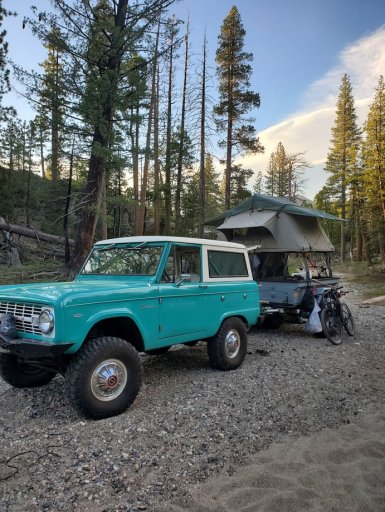
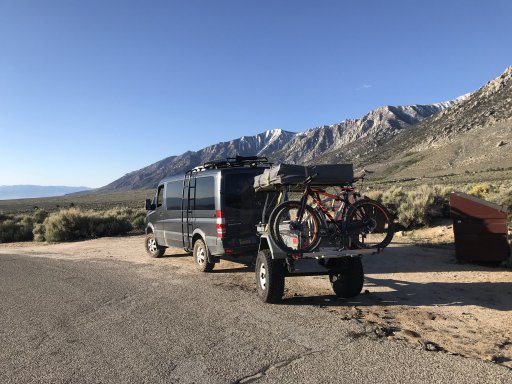
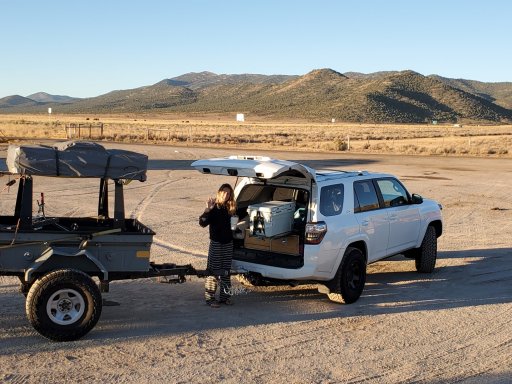
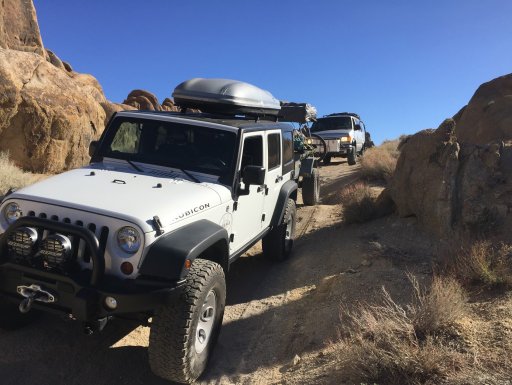
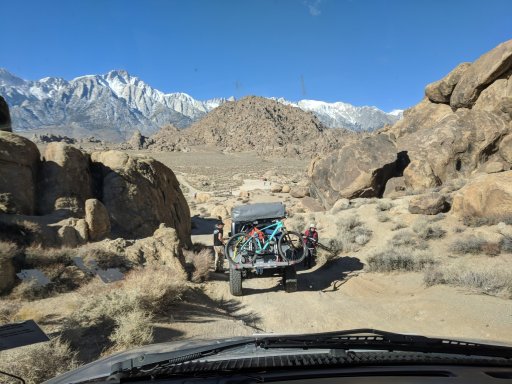

Enthusiast I

Influencer I

Off-Road Ranger I
0745
Absolutely! My extended family is learning about this. As much as we may desire a campfire on the high deserts, it makes little sense to be dragging firewood 3,000 miles or so, just for a little ambience let alone the environmental impact. Not only insects, but imagine what the northwest would look like if Crown Vetch ever became invasive to the region. On top of that, we are spoiled, I use 2-3 cords a season heating my carriage house as that is the hub of all things maintenance on our home and vehicles. We have a few 120 year old maples that keep me supplied with about a cord a year, on average. This past season I had to buy 2 cords for the first time in years. ( I hand split my own wood as needed, but last fall we were out and about during my self declared splitting season) so I bought some at 120 a cord- delivered.new topic, transporting firewood, there is an environmental risk to forests when transporting firewood across different watersheds. In most jurisdictions there is a regulation prohibiting it since a bug or disease can be transported with the firewood and affect the new area you are camping in. Thinking of tread lightly, it might be best to find firewood each night.

Off-Road Ranger I
0745
I’ll add that if the hitch is too high that trailer’ll swing right around and smack you upside the head.Track width is the width of the rear axles. Matching it to the tow vehicle can be convenient if it's an off road type trailer. With regular trailers it doesn't matter.
Wheelbase is the distance between your axles. Matching the trailer axle distance to the front ax,e distance, from the rear axle, can make the trailer tend to track in line with the tow vehicle in turns. But only to a certain extent. You'll get used to swinging wide and squaring off your turns, it's VMware no big deal.
The swinging boat anchors are because the rear of the trailer is too heavy. And the nose too light. This also causes the trailer to lift the tow vehicle when going over bumps on the highway. First clue is a noisy hitch. If your hitch rattles, you might be in trouble. This causes the most impressive flip over flying jacknife wrecks. A car or truck with suspension that's far too soft really accentuates this.
You always want to weigh down the nose of the trailer as much as possible, then pick a tow vehicle that can handle it. Since I can handle 3000# of tongue weight easy, I'll load my trailers abnormally heavy on the nose, for extra stability.
Just remember, if your tow vehicles nose is higher than it's tail, it won't be able to stop.
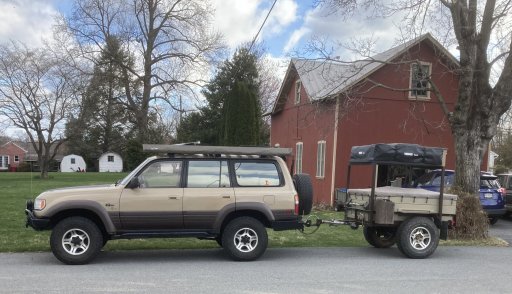
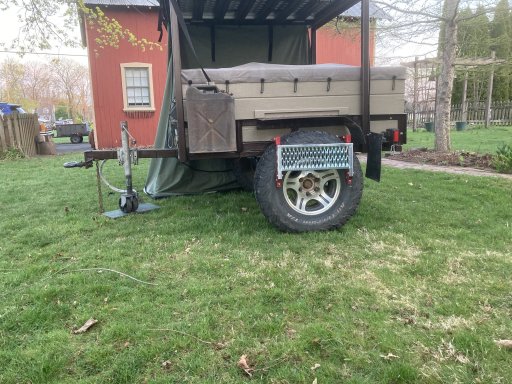

Enthusiast III
